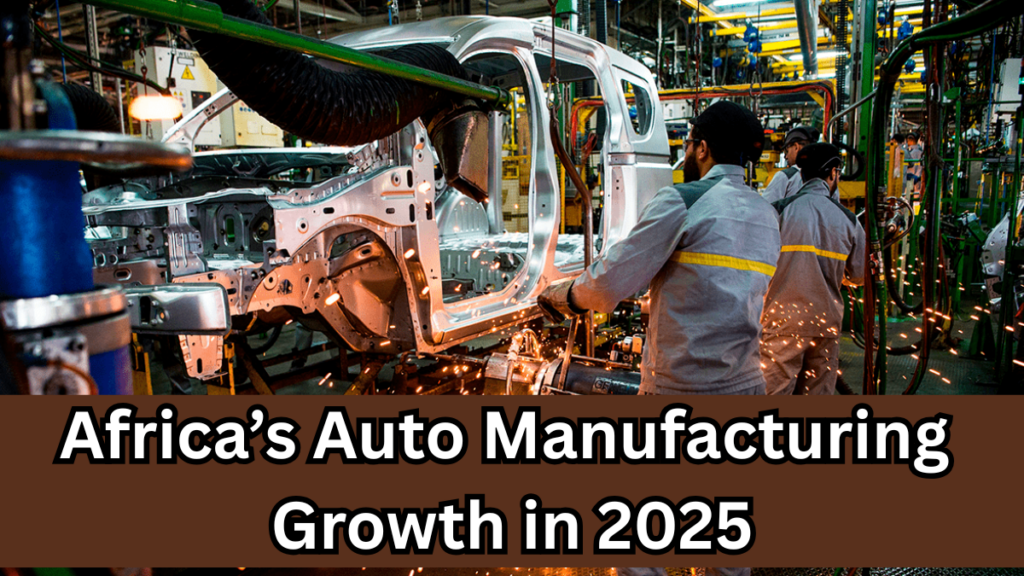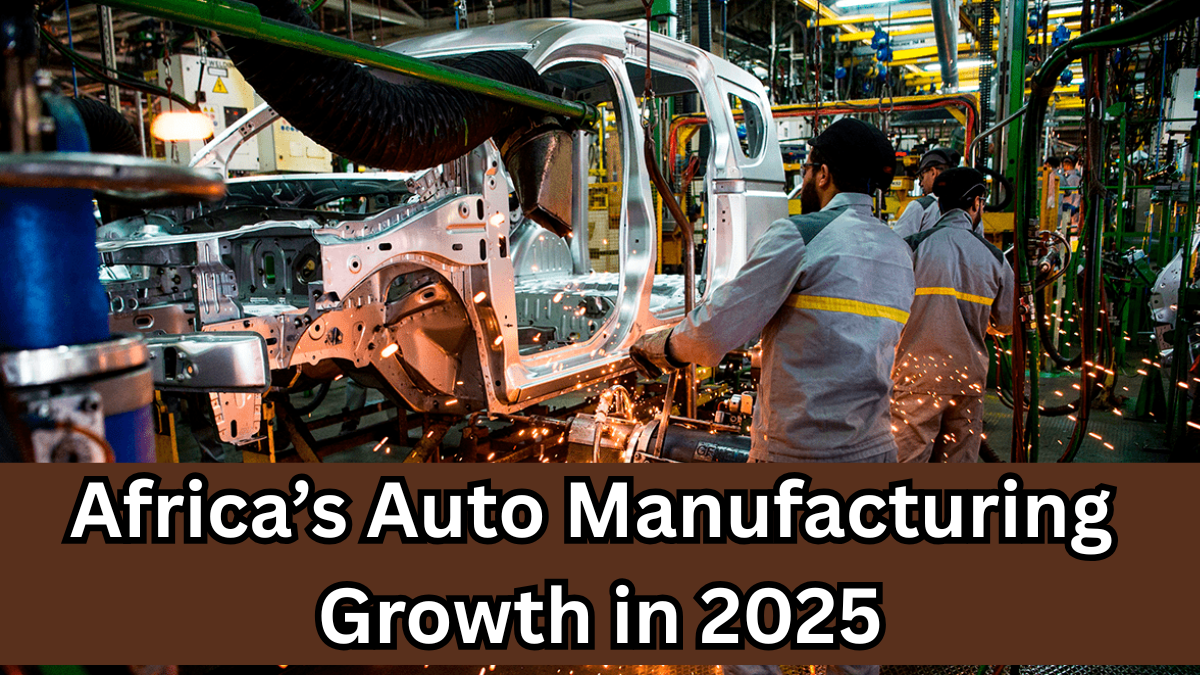In 2025, Africa’s auto industry is finally shifting gears. From buzzing local assembly plants to a growing emphasis on EV production, auto manufacturing in Africa is not only gaining momentum but also drawing global attention.
Let’s explore how this transformation is taking shape, what challenges remain, and what the road ahead looks like.

Why Africa is Ramping Up Auto Manufacturing
Several African countries are embracing industrialization by investing in their own vehicle production. This shift isn’t just about cars—it’s about jobs, sustainability, and long-term economic development.
Key Drivers of Growth
-
Rising demand for affordable and locally made vehicles
-
Government policies supporting local assembly over imports
-
Foreign direct investment from major global car manufacturers
-
Green mandates encouraging EV production across urban hubs
Countries Leading the Charge
Here’s a quick snapshot of countries spearheading auto manufacturing in Africa:
| Country | Key Initiative | Notable Manufacturers |
|---|---|---|
| South Africa | Established production & exports | Toyota, VW, Ford |
| Morocco | Auto hubs & EV-friendly policies | Renault, Peugeot |
| Nigeria | Focus on local assembly with government backing | Innoson, Stallion Group |
| Kenya | Support for EV production & e-mobility startups | Roam, Mobius Motors |
| Ghana | Automotive Development Policy (2020–2025) | VW, Kantanka |
Local Assembly: Building From the Ground Up
Local assembly is at the heart of Africa’s auto growth strategy. By assembling vehicles within the continent, African nations are cutting import costs, creating jobs, and promoting industrial development.
Benefits of Local Assembly
-
Reduced vehicle prices
-
Job creation in manufacturing and logistics
-
Boost to local component suppliers
-
Strengthened automotive ecosystems
Even smaller nations are now setting up local assembly units, showing that a continent-wide transformation is well underway.
The Rise of EV Production
With the global pivot toward electric vehicles, Africa is not being left behind. From Kenya’s electric bikes to Morocco’s EV-friendly exports, EV production is becoming a key pillar of the future.
EV-Related Developments
-
Expansion of EV charging infrastructure in cities like Nairobi and Kigali
-
Tax incentives for EV importers and manufacturers
-
Startups building locally made electric motorcycles and buses
-
Cross-border partnerships to support battery production and innovation
Challenges Slowing Down the Growth
Despite impressive strides, auto manufacturing in Africa still faces roadblocks.
Major Challenges
-
Inconsistent government policies
-
High cost of electricity and logistics
-
Lack of skilled labor in advanced manufacturing
-
Limited access to financing for auto startups
These hurdles highlight the need for more regional cooperation, private sector involvement, and long-term policy commitment.
What’s Next for Africa’s Auto Industry?
By 2030, experts predict Africa could become a major player in both combustion and electric vehicle manufacturing. If current investments and policy reforms hold, the dream of a self-sufficient African auto industry may soon become reality.
Industry Outlook by 2025
| Aspect | Current Status | Expected Growth by 2025 |
|---|---|---|
| Vehicle Assembly | 500,000+ units/year | Over 1 million units/year |
| EV Production | Early-stage projects | Widespread across 10+ nations |
| Job Creation | 100,000+ industry jobs | 300,000+ projected |
| Regional Integration | Fragmented supply chains | Improved coordination |
FAQs
1. Which African countries have the most advanced auto industries?
South Africa, Morocco, and Nigeria currently lead in terms of production capacity, investment, and global partnerships.
2. Why is local assembly important for Africa?
It reduces reliance on costly imports, boosts local job creation, and helps establish a sustainable manufacturing base.
3. Is EV production really picking up in Africa?
Yes. Several countries are investing in EV infrastructure, offering tax incentives, and supporting local EV manufacturing initiatives.
4. What role does the government play in auto manufacturing Africa?
Governments are key enablers—providing incentives, formulating policies to promote local assembly, and facilitating partnerships for growth.
Click here to learn more
Sachin is a dedicated writer specializing in education, career, and recruitment topics, delivering clear and actionable insights to empower readers.
